Video Clips
Talks and Lectures on Contemporary History and Today’s World
Below is a selection of illustrated lectures and presentations which Andrew offers
| # | Title | Lecture summary | |
|---|---|---|---|
| A. Britain’s war and post-war social and cultural upheavals | |||
| A1. |  |
The Sensational Trial of Lady Chatterley | Why did DH Lawrence’s novel Lady Chatterley’s Lover become a celebrated court case; what courtroom drama, unforgettable humour and humiliation for the prosecution did the procession of witnesses defending the novel produce? How did the trial serve as an overture to the later upheavals of the 60s and the permissive society? |
| A2. |  |
The Profumo Affair 60 years on | In July 1961, John Profumo met Christine Keeler at a country house party at Lord Astor’s Cliveden estate. The consequences flowing from that fateful weekend: sex, scandal, spies, security, suicide, race, violence, court cases, imprisonment and high politics, left Britain shellshocked. Things could never be the same again. |
| A3. |  |
Enoch Powell’s ‘Rivers of Blood’ speech in retrospect | Powell’s speech in Birmingham in 1968 was one of the most explosive of the post-war years. What kind of man was Powell; what did he say and why; how can his speech be seen today? |
| A4. |  |
The Politician, the stable boy and the Establishment | Jeremy Thorpe, the Liberal Leader, was compromised by a past relationship. This is a story of ambition, loyalty, establishment partisanship and a famous Old Bailey trial. |
| A5. |  |
The Second Elizabethan Age: Reliving our own story. Can you believe it? | AA vivid pastiche of post-war social and cultural change embracing families and marriage; jobs; day-to-day life; homes; transport; religion; popular entertainment; crime; the mass media and the growth of the permissive society. |
| A6. |  |
70 Remarkable Years: A Portrait of and Retrospect on Her Majesty Queen Elizabeth II | Looking at her childhood; her marriage and Philip; her youthful accession; her steadfast character; the responsibilities she carried and crises she faced; her family and homes across her Kingdom. How did she manage to remain a symbol of national unity across seven turbulent decades while retaining the affections of her subjects? What explains her success? |
| A7. | 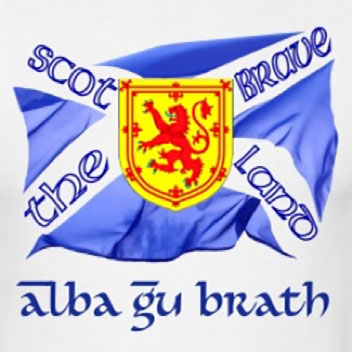 |
Scotland the Bonnie and the Brave | A vivid portrait of Scotland’s distinctive culture and difference; language, islands, munros, lochs, railways, clans and traditions, famous sons, relations with England. Will she go it alone? If she does, what will that mean for us all north and south of the border? |
| A8. | 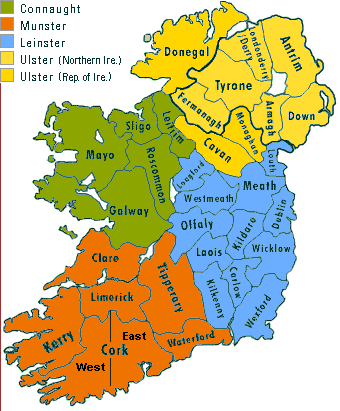 |
Ireland across the Ages; Culture, People and Identity | A moving and heartrending story of poverty, passion, famine, persecution and ultimately the pursuit of independence: a compelling narrative, rich in personality and differing senses of national identity while embracing her poets and novelists as well as Ireland’s majestic landscape, not least, Giant’s Causeway. |
| A9. |  |
The First World War: The Human Dimension | How was the war seen in 1914 and four years later; why did men fight; what did they experience; how were they changed; what was the legacy of the war? This intensely moving story will have you in tears. |
| A10. |  |
Not Much Gratitude There: The Upheaval of 1945 | Why was Mr Churchill, the architect of our victory over Hitler, so decisively rejected in the 1945 Election? What really caused the upheaval? Was the result a surprise or might it have been anticipated? |
| A11. |  |
Liverpool: from crisis to renewal: a city’s turbulent past and its resurgence | The story of Liverpool’s rise; the challenges of the 1980s and recovery embracing: the Beatles; two football clubs; the Toxteth riots; Heysel; the Hillsborough disaster; the leadership of two Bishops and, in 2008, European cultural capital. |
| A12. |  |
This United Kingdom | A vivid portrait of the English (or British); their people, culture, beliefs, attitudes, enthusiasms and eccentricities to set alongside the often different characteristics of other countries; is Britain still united? |
| A13. |  |
After the Covid storm: | Covid 19 has been unlike anything in our lifetimes. How will we, our society, our politics, our economy and the world be different when normality returns? Will some things change forever? |
| A14. |  |
British politics in turmoil | For over six years we have been living through a succession of upheavals; Dave, Theresa, Boris, Liz and now Rishi not forgetting Jeremy. Brexit has added to the mix while Covid has increased our debt; the NHS struggles; inflation rises; families are driven to food banks and we hesitate to define a woman. What interlocking factors lie behind our recent upheavals; what new factors now shape our thinking and our allegiances? |
| A15. | 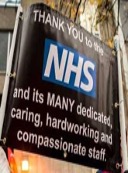 |
An anatomy of our beloved NHS | Once described as ‘the closest thing Britain has to a national religion’, its place in the nation’s heart was confirmed by Covid. How does it work; what does it cost; do others ‘do health’ differently? |
| A16. | 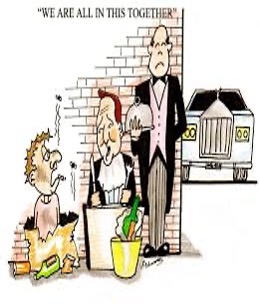 |
Understanding Inequality in Britain today? | Why has inequality become a burning contemporary issue? How can we find a future fair to all while encouraging the growth and prosperity on which we all depend? |
| A17. | 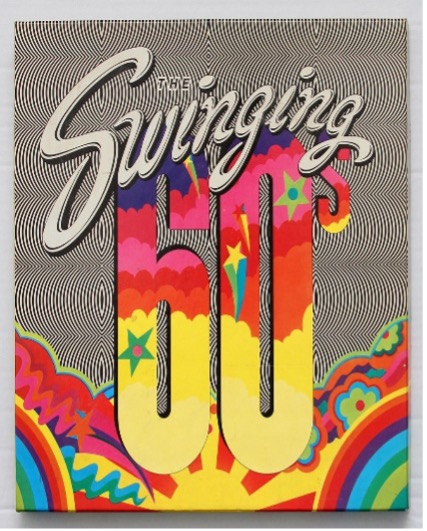 |
The Swinging Sixties | The scarcely believable story of how in a single decade older values and hierarchies were swept aside giving birth in censorship, satire, sex, abortion, gay rights, divorce and homicide to a more liberal and permissive culture which challenged so much which was familiar and gave us the Britain we know today; a roller coaster of a journey – relive it all and enjoy the ride! |
| B. Some of Britain’s most engaging post-war personalities | |||
| B1. |  |
Winston Churchill; man, politician, leader | Churchill is seen as the man who won the war. This vivid portrait considers his decisive leadership but also his early life, marriage; wit; friendships; enthusiasms; moods and, not least, his stature as a human being. |
| B2. |  |
‘And a little mouse shall lead them’ (Hugh Dalton). But was Clement Attlee so much more? | How, despite his lack of charisma, did Clement Attlee’s Government give Britain a new direction after the war? How did that agenda come to shape a new and remarkable cross-party consensus? |
| B3. |  |
Supermac: The Last Edwardian at No 10 | An intimate portrait of Harold Macmillan; the actor manager as PM. How was his image an integral part of his appeal? Was he out of touch or did he grasp the adjustments needed in a changing post-war world? |
| B4. |  |
Maggie: The Iron Lady; a personal and political portrait | What kind of woman was Mrs Thatcher? What shaped her instincts, beliefs and style? What challenge did she bring to the post-war consensus? How much did she change; why did she fall; was her legacy enduring? |
| B5. |  |
TB/GB: The Rivals; Friendship, Partnership and Antipathy | How did Tony Blair and Gordon Brown shape New Labour’s vision? On what did they agree and disagree? How did they work together in Cabinet and why did their personal relationship become so acrimonious? |
| B6. |  |
Who is the greatest of our post-war leaders? | Vivid and amusing portraits can help us see how 15 different PMs have played the role. What are the characteristics of a great leader; what kind of rank order emerges? |
| B7. | 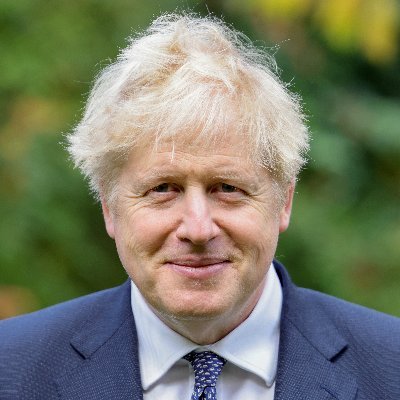 |
Just Boris; the politician as entertainer | A Portrait of an unconventional Prime Minister embracing his life, his loves, his appeal but also his beliefs, his style in No 10 and his legacy. What was his undoing? |
| C. American personalities and culture, then and now | |||
| C1. |  |
JFK: the politics of hope and expectation | JFK became President at 43; three years later, he was dead. What kind of man was he and how did he see the future of both the US and the world? What did he achieve and what was his legacy? |
| C2. |  |
America’s crusader for civil rights: He had a Dream | Martin Luther King embodied the US civil rights movement from 1955 to his death in 1968 at 39. What made him such a charismatic and influential leader? Did he realise his Dream? Is America today different because of him? |
| C3. |  |
The Donald Trump Phenomenon: A Retrospect on the 45th President of the USA who was like no other | A vivid portrait of the celebrity turned politician: his ego, past and style. To whom did he appeal and why? What did he achieve; what of his legacy? |
| C4. |  |
What was and is ‘the American Dream’? | Where did ‘the Dream’ originate; how has it been understood and articulated; has it ever been made a reality and where stands ‘the Dream’ in American life today? |
| D. The Baltic and Scandinavia: Exploring contrasting cultures | |||
| D1. |  |
Understanding Iceland | Iceland, by far the smallest Nordic country, is famed for spectacular scenery, robust knitwear, belief in elves and an historic capital. In 2008, it faced acute financial debt. Where next for Iceland? |
| D2. |  |
Norwegian Culture: ‘They do things differently there’ | A portrayal of Norway’s distinctive culture embracing the landscape, economy, taxation, welfare, the pursuit of equality and Norway’s prosperity, happiness and contentment. |
| D3. |  |
The Norwegian Temperament: two responses to adversity separated by 70 years | The moving and dignified Norwegian response to first, the Nazi invasion in 1940 and, second, the mass shootings of Anders Breivik in 2011 and the influences behind Norway’s character and thinking. |
| D4. |  |
Denmark and Sweden | Are these Nordic countries, sharing distinctive characteristics, saying something to us? How different are they? How are they responding to the pressures of the contemporary world? |
| D5. |  |
‘A collection of countries you can’t tell apart’ | This is how the five Nordic countries have been described. But is that true? What is the common ground they share and where do they differ? What are they telling us? Ought we to listen? |
| D6. |  |
Is Sweden Changing? | This is the land of consensus, equality, welfare, personal liberty, diligence and neutrality; home of Volvo, IKEA and prosperity. But Sweden is also a country of growing unrest and tension. Why? Is the consensus beginning to crack? |
| D7. |  |
Denmark and Norway: Portrait of another world | A fascinating exploration of the characteristics and culture of these two countries and of the questions they are asking as they look to the future. |
| D8. |  |
Denmark: Trust and personal freedom | A penetrating exploration of the distinctive attitudes, characteristics and culture of this Nordic country- a place of flags, informality and cycling – but also of the questions some apprehensive Danes are asking as they look to the future. |
| D9. | 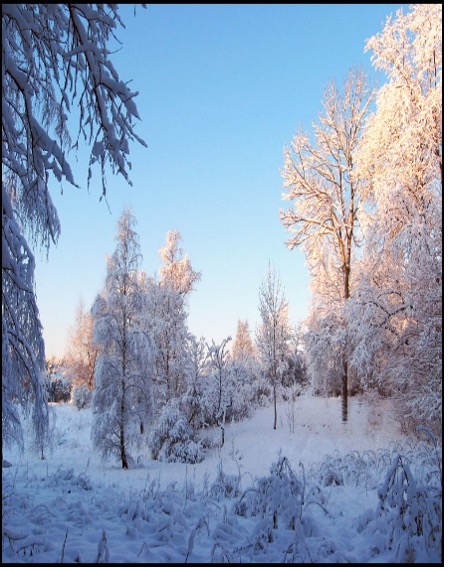 |
A Portrait of Finland, Scandinavia’s most easterly country | A land of lakes, forests, low temperatures and saunas. Famous for its dark winters, perhaps its drinking, but also for Formula One; a country where equality and education are prized. |
| D10. | 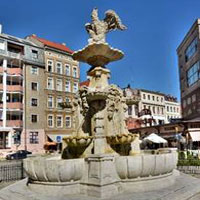 |
Poland: The Embattled State: | Caught between East and West, Poland offers a moving and heart-rending story of one nation’s struggle for freedom and dignity in the face of partition, invasion, devastation and heroic renewal. But what of her future? |
| D11. | 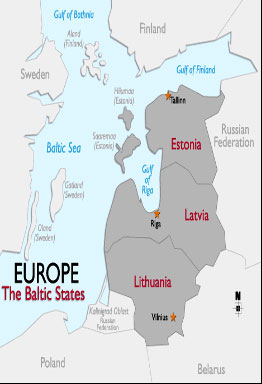 |
The Baltic States, Latvia, Lithuania and Estonia | Together, they are scarcely bigger than Scotland. Dominated for much of their history by Russia, they are now vigorously independent and intending so to remain. This portrait of their culture asks: where next? |
| E. Spain, Europe, Russia, China, Africa: Cultures and personalities | |||
| E1. |  |
Spain’s Golden Age and After: Another World | The remarkable story of how the Spanish Conquistadors, through ruthless ambition and a fearless spirit of adventure, created a global Empire and how that empire later crumbled. |
| E2. |  |
Understanding Modern Spain | The story of her troubled and turbulent past; her brutal Civil War, Franco’s dictatorship and her remarkable social, economic, cultural and political transformation of the last 50 years. |
| E3. |  |
From Prussia to the German Reichs | From the early C18th, continuity was a major theme in Prusso-German history. This talk sets modern Germany in context exploring the ideas and personalities which led twice to Armageddon. |
| E4. |  |
Adolf Hitler: Architect of the most profound collapse of modern civilisation | What kind of man was he? What did he believe? What made him possible? What kind of leader was he? How did reduce a civilised nation to barbarism? |
| E5. | 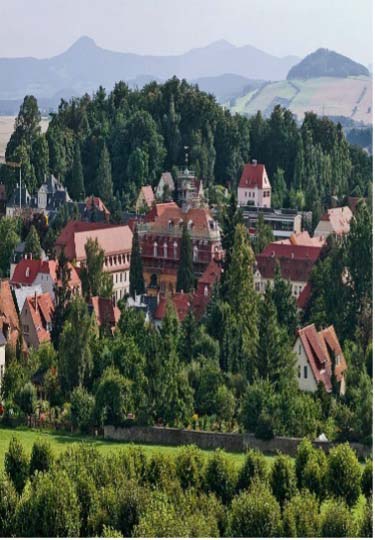 |
Germany’s Secret | Germany’s post-war resurgence has been little less than remarkable. Now, a very different country, pre-eminent on the continent of Europe, how can her strength, vitality, resurgence and prosperity best be explained? |
| E6. | 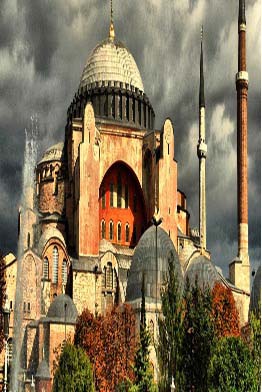 |
The Lost Civilisation | A cultural panorama on pre-revolutionary Russia: her character, folklore, spirituality, novelists, playwrights, musicians and artists and, not least, St Petersburg and Moscow: a fascinating pursuit of a country both European and Asiatic. |
| E7. |  |
Russia: The Forgotten Holocaust | Between 1924 and 1953 millions of Russians, ‘Enemies of the People’, perished in the Soviet Union’s network of concentration camps – the Gulag. This is the searing story of their ‘crimes’, humiliation, suffering and death. Why did it happen? |
| E8. |  |
Alexander Solzhenitsyn and the triumph of the human spirit | The engaging and uplifting struggle of one extraordinary Russian writer, patriot and human being against adversity, brutality, tyranny and oppression. |
| E9. |  |
Tsar Vladimir I? Winston Churchill described Russia as, ‘a riddle wrapped in a mystery inside an enigma’ | How can an understanding of Russian history and culture before and after the 1917 Revolution, enable us better to understand Russia and Putin today? |
| E10. | 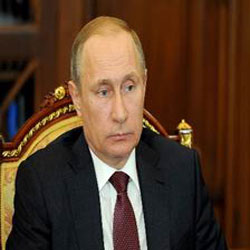 |
The Reality of Putin’s Russia Today. | How Vladimir Putin and his KGB allies captured the Russian state while enriching themselves, cast democracy aside, reconnected with Russia’s autocratic past and took on the West. |
| E11. | 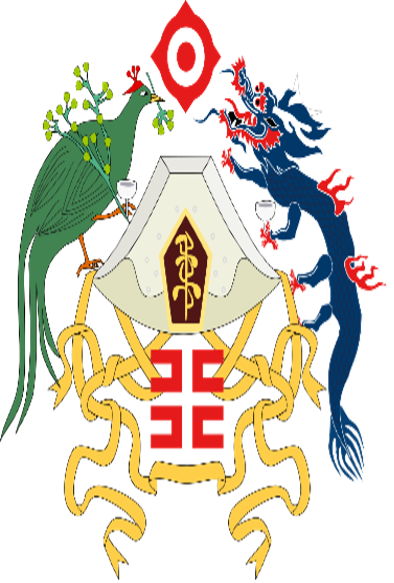 |
China: The Red Dragon awakes: | China, the world’s largest country, has vast economic and technological power. What is China like on the inside? What are President Xi’s ambitions? Does the West have a coherent approach to China? Ought we to be afraid? |
| E12. |  |
Nelson Mandela: the triumph of warmth, humanity, generosity | Following the centenary of his birth, and drawing on his writings, his years in prison and his leadership, this is a portrait of one of the most remarkable men of our times. |
| F. Reflections on our lives today: where are we heading? | |||
| F1. |  |
Political Correctness, Woke and the Culture Wars; the new insanity? | George Orwell argued that freedom is the right to say that 2+2 = 4. Today, are we free or constrained in what we write, say and think (or don’t think) and in how issues are discussed? |
| F2. |  |
How should we lead our lives and what must we avoid? | Canadian psychologist, Jordan Peterson, became a megastar through two books ‘12 Rules for Life’ and ‘Beyond Order’. What is he saying? How does his message relate to our own lives today? |
| F3. |  |
What does it mean to be ‘good? What is the ‘good’ society and what challenges do we and it face today? | Doing what is right rather than what is easiest or serves our own interests, can test us. Yet, whatever our circumstances, we always have the power to choose. We can all be good. |
| F4. |  |
Happiness and how to make it part of our lives | We find happiness in different and often unexpected places. Let’s try to tease out some approaches and attitudes which may open the door to personal fulfilment. |
| F5. |  |
Amidst doom and gloom, ought we to celebrate? | Every day seems to bring news of some disaster; now Coronavirus. But we are living through an era of unprecedented progress. How is that best defined; why has it come and where is it proving elusive? |
| F6. |  |
Wealth in Britain today: too much for the baby boomers? | How is wealth in Britain divided between the generations? How has this arisen; has the inter-generational contract been broken? Does it matter? What should we do? |
| F7. |  |
What does it mean to speak of Post Truth today? | The gap between rhetoric and reality in political exchange has brought widespread public disenchantment and distrust. How has this happened? How pervasive is it? What can be done? |
| F8. |  |
Making sense of today’s populist upheavals | Since 2008, the West has been in upheaval. In Britain, Europe and America there has been a revolt against traditional leaders. What is going on? What explains the ‘outsiders’ challenge to ‘insiders’? |
| F9. |  |
The crumbling old certainties: British politics in turmoil | The 2016 EU referendum and its aftermath have turned British politics upside down. What new divisions are emerging and why? Can we put together the jigsaw and where are we going? |
| F10. |  |
Brexit in a broader context | How did circumstance, age, education, culture, geography and identity, shape voters’ choices and attitudes? What longer term forces were in play and why has Brexit proved to be so divisive an issue? |
| F11. |  |
Education: Gateway to opportunity; but is it? | What have been the defining characteristics of our education system since 1945? Does that system served our best interests? Is past practice the best guide to the future? |
| F12. | 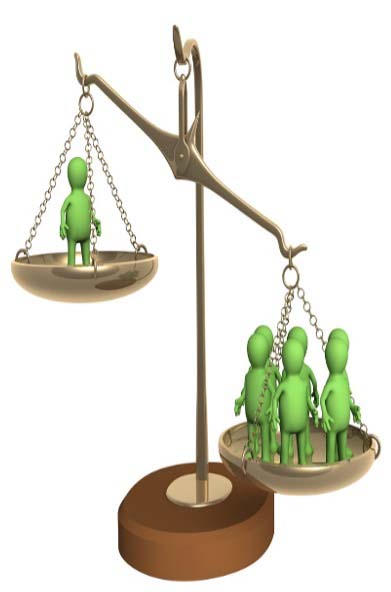 |
A World Less Free | We cherish our ‘democratic’ way of life and our freedoms. But we are the exception; in most countries today ‘unfreedom’ is the norm. What explains the ‘democratic deficit’? Can it be reversed? |
What those who have heard Andrew speak at sea and on land have said
To groups on cruise ships

Andrew is a commanding and engaging speaker whom I have heard on many occasions. He speaks with clarity, insight and humour and is able to connect with a range of audiences.

I found Andrew’s 45 minute lecture quite outstanding. I knew little about the subject beforehand but he held my attention completely and made his subject absolutely compelling. First class.

I have listened to Andrew speak on several occasions on aspects of post-war Britain ranging from the Profumo affair to Brexit, to Prime Ministerial enthusiasms and eccentricities. You need no prior knowledge to enjoy these presentations. The depth of his knowledge is impressive and his lively, witty and incisive delivery is superb. He supports his talks with PowerPoint visuals and invariably keeps his audience both engaged and entertained. I recommend him without reservation.

We have all lived through these times but Andrew’s use of telling detail and anecdote, his painting pictures with words and his absolute command of his subject made all his presentations on our cruise utterly compelling.

Andrew spoke on six occasions on our cruise on a formidable range of subjects. We were a group of six and found him captivating. We also found the conversation continuing afterwards in the bars and restaurants.
To groups around the country

Many thanks for your relaxed, informative and fascinating talk. (Rutland)

Thank you very much for your talk today which generated a great deal of discussion. (White Cliffs)

Your talk was very thought-provoking and the discussion in our house has continued. We have had very positive feedback. (Weston Super Mare)

‘I really enjoyed Andrew Baker’s talk. It was stimulating food for thought and I found the talk quite uplifting and a salutary reminder of some fundamental things that are easy to forget.’ (Leyland)

‘That was a fascinating talk, thank you so much’. (Radlett)

Thank you very much for an absorbing and entertaining talk which our members greatly enjoyed. You have a firm grip of the details and we will certainly be in contact to arrange another talk. (Esher)

Many of us well remember the 1940’s and 1950’s but Andrew’s talk on the pace of change was cleverly constructed; a very entertaining nostalgic trip revisiting times through which we have lived. (Colchester)

Andrew delivered a riveting analysis of the merits of our post-war Prime Ministers. It was a thorough, balanced and thought-provoking presentation. It was very refreshing to have a talk of this quality and range at one of our monthly meetings. (Beccles)

What a terrific talk! I enjoyed the formal style, erudition and humour that Andrew offered. (Bookham)

This morning’s talk was absolutely fascinating, a huge amount of content so very well presented by Andrew. An absorbing subject that could have easily been confusing but it was so clearly set out and peppered with amusing anecdotes. (Maidstone)

Thank you very much for an excellent talk on Russia and Vladimir Putin today. (Tenterden)

Well done on a superb presentation today – your best yet and that’s saying something. Definitely deserves a wider audience! (Mole Valley)

Thank you very much for the talk on Maggie Thatcher last Monday. We all thoroughly enjoyed it, and I have had lots of positive feedback from members. (Hutton)

‘Your talk was a veritable tour de force, a perfect template for how a lecture should be conducted; excellent visual support; clear and audible diction; cocktail of drama, humour and pathos. The best lecture I have heard at Ashridge.’ (Eastbourne Ashridge Circle)
Zoom Presentations
In present circumstances, where Covid has made it difficult for groups to come together to hold regular meetings, many have enjoyed using Zoom.
Andrew has given around 30 presentations via Zoom and he is able to ‘host’ meetings so groups themselves would not need to make any special arrangements. Groups watching by Zoom would see both Andrew speaking and the vivid PowerPoint images supporting his presentation. Questions and discussion follow in the usual manner.
The Booking Form makes it possible for groups to request either a Formal Presentation or a Zoom Presentation.